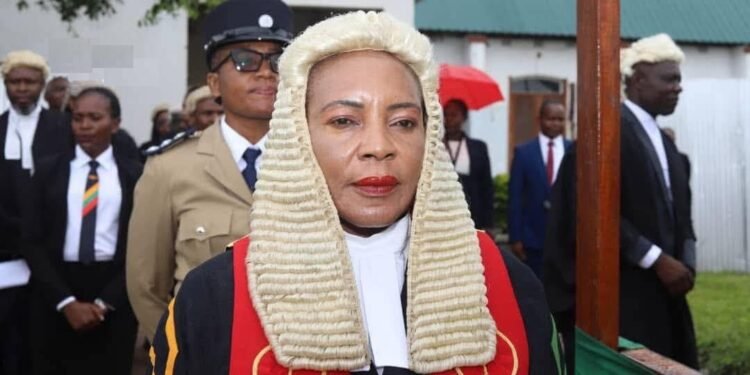Chiefs are not the people, Mutti reminded
By Thandizo Banda
WHILE chiefs are the respected custodians of culture they cannot be expected to speak comprehensively on behalf of citizens in such a technical and far-reaching process s constitutional amendment, Dr Lawrence Mwelwa has said.
Dr Mwelwa, a political scientist and governance activist, castigated Speaker of the National Assembly Nelly Mutti over her recent statement assuring chiefs in Muchinga Province that the Constitutional review process would soon resume despite numerous active cases in court against it.
“Endorsements from traditional leaders, however, ceremonially significant, cannot substitute for informed consent from the people themselves,” he said.
“Let us not forget that the Constitutional Court has already pronounced itself on matters of constitutional amendment, declaring Bill No. 7 unconstitutional. In this light, any premature assurances of Parliament’s readiness not only overstep the Speaker’s neutral role but also risk politicising her office.”
“I have taken note of the recent statement attributed to the Right Honourable Speaker of the National Assembly, Ms Nelly Mutti, during her tour of Muchinga Province, where she assured traditional leaders that “the National Assembly is ready to resume the constitutional review process and is only awaiting the indication from the Executive to proceed,” Dr Mwelwa said in a statement seen by The Mast.
He said while it was commendable that Mutti had engaged various stakeholders, such a pronouncements sat outside the constitutional mandate of her office.
“The Speaker’s primary duty is to preside over the business of the House impartially and ensure that parliamentary proceedings are conducted in accordance with the Standing Orders. The initiation and conduct of constitutional reform, however, is a sovereign act of the people exercised through Parliament collectively, and guided by Article 79 of the Constitution of Zambia (Amendment) Act, 2016,” Dr Mwelwa said.
He said by suggesting that Parliament was simply “waiting for the Executive,” the Speaker risked undermining the doctrine of separation of powers and reducing the Legislature to a mere extension of the Executive arm of government.
Constitution-making was not an Executive-driven process, nor should it be pre-empted by the presiding officer of Parliament.
“Furthermore, broad-based consultations on constitutional review must, as a matter of tradition and law, be carried out by a commission or committee established under an Act of Parliament,” Dr Mwelwa said.
“As governance activists and citizens committed to constitutional morality, we must insist that any future review process be people-driven, transparent, and inclusive – anchored in law and debated freely in the House. The Speaker must remain an impartial referee, not an active participant in constitutional contestation,” he said.
Government was forced to mothball the Constitution of Zambia (Amendment) Bill No. 7 of 2025 under intense pressure.
The Constitutional Court declared the foundation of the bill as unconstitutional and therefore illegal because it lacked broad public consultation.

























